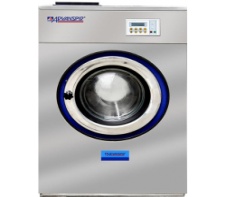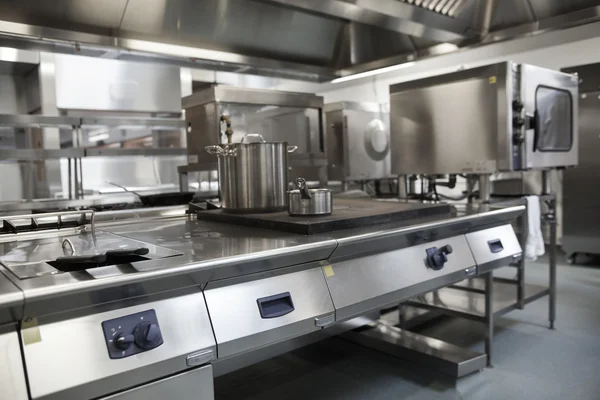
Commercial laundry machines are the backbone of any business in the hospitality industry, healthcare facilities, and other establishments where large volumes of laundry are processed daily.
These machines undergo significant wear and tear due to continuous use, making maintenance crucial for their longevity and performance. In this comprehensive guide, we’ll explore essential tips and practices to maintain commercial laundry machines effectively, ensuring they operate efficiently for years to come.
Understanding Commercial Laundry Machines
Commercial laundry machines encompass a range of equipment, including washers, dryers, and ironing machines, designed to handle heavy loads and deliver consistent results. These machines are equipped with robust components and advanced technology to meet the demands of commercial settings, but they still require regular maintenance to prevent breakdowns and ensure optimal performance.
Maintenance Tips

Establish a Routine Maintenance Schedule
The foundation of maintaining commercial laundry machines is establishing a routine maintenance schedule. Create a calendar outlining daily, weekly, monthly, and quarterly tasks to ensure all aspects of machine upkeep are covered. Consistent maintenance prevents minor issues from escalating into major problems, saving time and money in the long run.
Clean Filters and Lint Traps Regularly
Proper airflow is essential for the efficient operation of dryers and prevents overheating. Clean the lint traps after each load and inspect them for any buildup that could impede airflow. Additionally, washers have filters that need regular cleaning to prevent clogs and maintain water flow. Regularly cleaning filters and lint traps reduces strain on the machines and prolongs their lifespan.
Inspect Hoses and Connections
Inspect hoses, pipes, and connections for signs of wear, leaks, or damage regularly. Loose connections or damaged hoses can lead to water leaks, which not only affect machine performance but also pose safety hazards. Replace any worn-out hoses or fittings promptly to prevent water damage and ensure the smooth operation of your laundry machines.
Check for Signs of Wear and Tear
Conduct regular inspections of all components, including belts, bearings, and seals, for signs of wear and tear. Replace worn or damaged parts promptly to prevent further damage and avoid unexpected breakdowns. Pay special attention to areas prone to friction and stress, such as door seals and drive belts, as they are susceptible to deterioration over time.
Calibrate Machines for Optimal Performance
Calibrating commercial laundry machines ensures they operate at peak efficiency, delivering consistent results with every cycle. Calibrate washers to ensure proper water levels, temperature settings, and cycle times. Similarly, calibrate dryers to achieve optimal drying times and temperatures. Proper calibration not only improves performance but also prolongs the lifespan of the machines by reducing strain on components.
Clean and Descale Regularly
Hard water can cause mineral buildup in commercial laundry machines, affecting performance and efficiency. Regularly clean and descale washers, dryers, and ironing machines using a commercial descaling solution. Pay attention to areas prone to scaling, such as heating elements and water inlet valves. Preventing mineral buildup prolongs the lifespan of your machines and maintains their effectiveness.
Lubricate Moving Parts
Commercial laundry machines have numerous moving parts, including motors, bearings, and pulleys, that require lubrication to reduce friction and wear. Use manufacturer-recommended lubricants to lubricate moving parts regularly. Over time, lubrication diminishes, so it’s essential to adhere to a regular lubrication schedule to ensure smooth operation and prevent premature failure of components.
Monitor Electrical Components
Electrical components, such as switches, relays, and control panels, play a crucial role in the operation of commercial laundry machines. Regularly inspect these components for signs of damage, corrosion, or overheating. Loose connections or faulty electrical components can pose fire hazards and lead to machine malfunctions. Address any electrical issues promptly to ensure the safety and reliability of your laundry equipment.
Train Staff on Proper Usage and Maintenance
Proper training of staff is essential for the efficient operation and maintenance of commercial laundry machines. Provide comprehensive training on machine usage, including loading procedures, detergent usage, and cycle selection. Additionally, educate staff on routine maintenance tasks and safety protocols to prevent accidents and ensure the longevity of your equipment.
Invest in Professional Service and Repairs
Despite diligent maintenance, commercial laundry machines may require professional service or repairs from time to time. Establish a relationship with a reputable service provider experienced in commercial laundry equipment. Schedule regular inspections and maintenance checks to identify potential issues early and address them before they escalate. Investing in professional service ensures that your machines receive expert care and extends their lifespan.
Conclusion
Maintaining commercial laundry machines is essential for ensuring their longevity and reliable performance in high-demand environments. By establishing a routine maintenance schedule, regularly cleaning and inspecting components, and investing in professional service when needed, you can prolong the lifespan of your equipment and maximize its efficiency. Remember that proactive maintenance not only saves time and money but also ensures that your laundry operations run smoothly for years to come.


